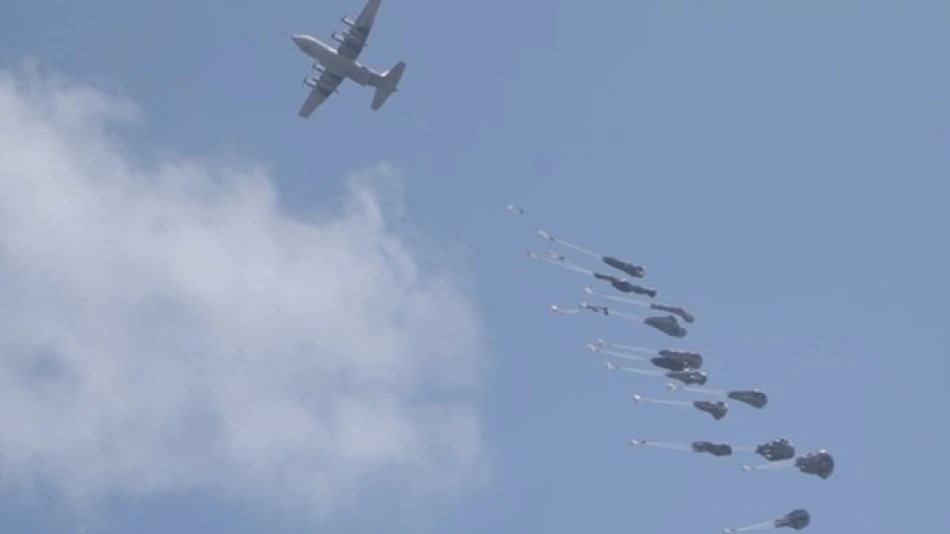
UAE Airdrops Vital Aid for 70th Time to Embattled Gaza Strip
UAE Delivers 70th Airdrop to Gaza as International Coalition Expands Humanitarian Reach
The United Arab Emirates has completed its 70th airdrop of humanitarian aid to Gaza's Palestinian population, marking a significant milestone in what has become one of the region's most sustained aerial relief operations. The mission, conducted under the "Birds of Goodness" initiative within the broader "Gallant Knight 3" operation, now includes an expanding coalition of European nations alongside Jordan, signaling growing international coordination in Gaza relief efforts.
Coalition Building Through Crisis Response
The latest airdrop involved collaboration between the UAE, Jordan, Germany, Italy, Belgium, and France—a notable expansion from earlier operations that primarily involved regional partners. This growing European participation reflects the international community's recognition that traditional aid delivery methods through ground crossings remain severely constrained.
The inclusion of multiple European Union members in these operations represents a pragmatic shift toward aerial delivery systems, acknowledging the limitations of conventional humanitarian corridors in the current conflict environment. For European governments, participation offers a way to demonstrate tangible support for Palestinian civilians while navigating complex diplomatic considerations.
Scale and Strategic Impact
With over 3,940 tons of aid delivered through 70 airdrops, the UAE's operation has established itself as a major humanitarian lifeline. The supplies include essential food items and critical necessities, funded through Emirati charitable institutions and government resources.
This tonnage represents a substantial logistical achievement, comparable to major international relief operations in other conflict zones. The consistency of delivery—averaging one airdrop every few days since the operation began—demonstrates both operational capacity and sustained political commitment.
Operational Challenges and Innovation
Aerial humanitarian delivery presents unique challenges compared to ground-based distribution. Airdrops require precise coordination to ensure supplies reach intended recipients while avoiding areas of active conflict. The UAE's ability to maintain this pace suggests sophisticated logistical planning and coordination with ground-based partners for recovery and distribution.
Regional Diplomatic Implications
The UAE's prominent role in Gaza humanitarian assistance carries significant diplomatic weight in the broader Middle East context. As a nation that normalized relations with Israel through the 2020 Abraham Accords, the UAE's sustained aid operation demonstrates its commitment to Palestinian welfare despite improved Israeli ties.
This approach allows the UAE to maintain credibility with both Palestinian populations and Arab public opinion while preserving its strategic relationships. The operation showcases how Gulf states can leverage their resources and logistics capabilities to play constructive roles in regional crises.
Setting Precedents for Future Crises
The "Gallant Knight 3" operation may establish new templates for international humanitarian response in conflict zones where traditional aid delivery faces obstacles. The UAE's coordination with European partners creates a model that combines regional leadership with international participation.
For humanitarian organizations and donor countries, this operation provides valuable data on the effectiveness and sustainability of large-scale airdrop campaigns. The lessons learned could prove crucial for future emergency responses in similarly constrained environments worldwide.
The UAE's sustained commitment—now spanning 70 operations—also demonstrates how consistent, long-term humanitarian engagement can maintain international attention on ongoing crises while building diplomatic capital and operational expertise.
Most Viewed News

 Layla Al Mansoori
Layla Al Mansoori






